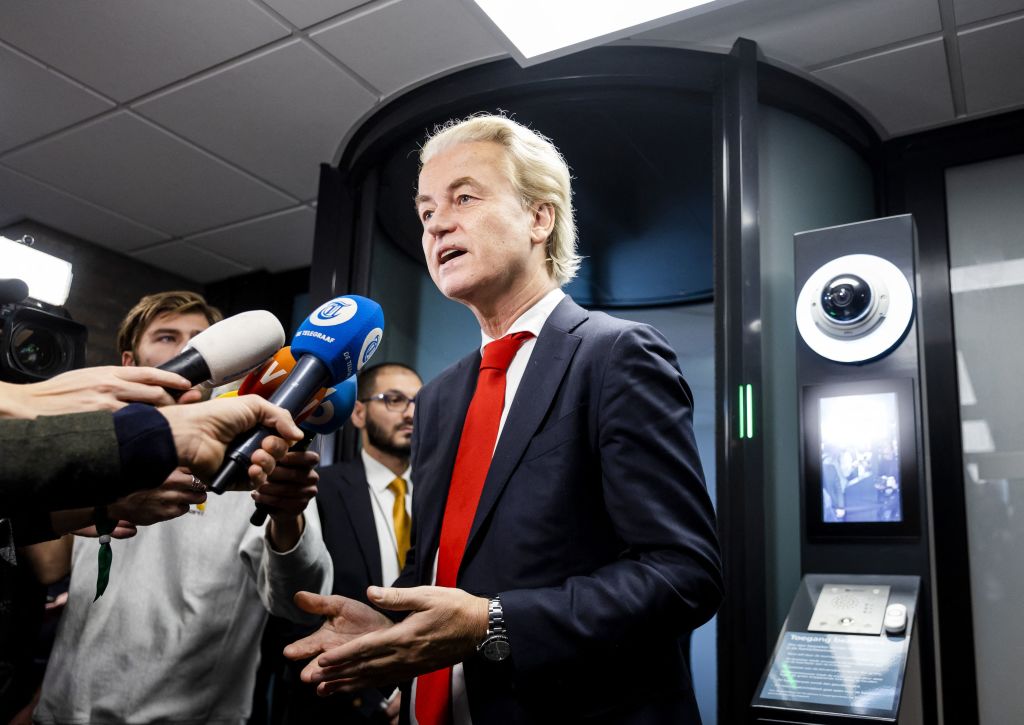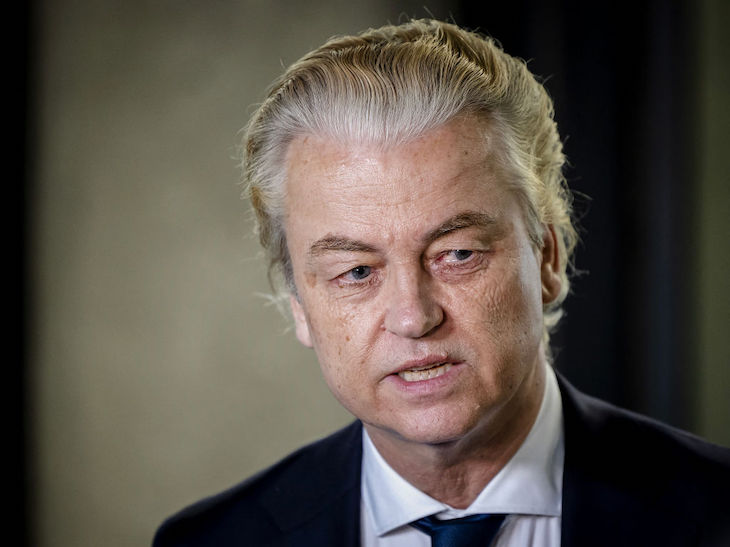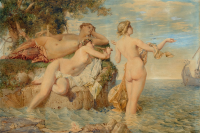Some of us have vindictively long memories. I am one such person. So let me summon up just two stories from the not-so-distant past that have some bearing on our unhappy present.
In 2009 the Dutch politician Geert Wilders was barred by Jacqui Smith, the then Labour home secretary, from entering the UK. In a letter explaining her decision, Smith (or rather her Home Office lawyers) wrote that Wilders’s ‘statements about Muslims and their beliefs would threaten community harmony and therefore public safety in the UK’. Perhaps Smith was partly influenced by the possibility that if Wilders came to the Houses of Parliament and gave his speech (in which he was expected to show his film Fitna) thousands of angry Islamists might decide to take to the streets in Westminster. Something which has, of course, never happened since.
Already the continent is full of leaders who the left say we should have no dealings with
It was a minor but significant diplomatic incident, with the then Dutch ambassador turning up at Heathrow to greet Wilders – who was turned away at the border – and announcing this a serious insult to his country and to the principles of free speech.
I was slightly involved in this affair and remember how Wilders was smeared across the British press as ‘far right’ and more. But as I said at the time to Smith and some of her allies: ‘What will you do when Wilders is prime minister? Do you intend to bar prime ministers – as well as opposition leaders – of our European allies from entering the UK?’
In the years since, Smith has disappeared into podcast oblivion, a place much better suited to her talents than high office. But Wilders? He has risen and risen. At the Dutch elections last November, his Party for Freedom topped the polls, coming in with the most number of seats. His centre-right rivals have joined him in a coalition and though an agreement has been made to appoint a non-politician as PM (strange, I know), nevertheless it is Wilders who is the king of the Dutch political system.

It was not impossible to foresee. It happened because of trends that were completely predictable. Immigration continued out of control. Moroccan gangs continued to be disproportionately responsible for crime. Centre-right figures such as Mark Rutte promised things they did not deliver. The feeling grew among the Dutch that they were being taken advantage of.
Allow me one other glimpse into the distant past. In February 2020, Yoram Hazony, the Israeli political theorist and scholar, organised one of his National Conservatism conferences, this time in Rome. Among those attending were Giorgia Meloni, Viktor Orban and me. Matteo Salvini was meant to be there but didn’t make it. The only elected official from the UK to turn up was the Conservative MP Daniel Kawczynski. And my word what a fuss there was back home.
During the conference a fellow Tory MP called for the party to investigate Kawczynski. Dame Margaret Hodge, among others, demanded that Kawczynski lose the Conservative party whip. According to Hodge – who seemed to have a cursory knowledge of European politics – he had been at a conference ‘packed full of racists, homophobes and Islamophobes’.
Once again, I asked the question of the would-be police commissars in Westminster: what are you going to do when all these people are in power across the continent? Orban has been the elected leader of Hungary for some years. Are politicians in Britain to be punished for appearing at a conference in which the prime minister of one of our European allies is also taking part? If so, why?
You didn’t need to use Orban to make this point. In 2022 Meloni overtook Salvini in the polls and became the PM of Italy. Six months later she was at No. 10, meeting Rishi Sunak, the pair hailing the ‘strong friendship’ between the two countries.
That’s quite the fast-forward. In 2020 a Conservative MP could be threatened with the withdrawal of his party’s whip for being in the same room as Meloni. Three years later she was being feted in Downing Street. There is a lesson here somewhere – one I have been trying to impart for some years.
As this week’s EU elections are likely to make clear, our continent is turning right. Not dangerously right. Nobody apart from the Guardian and BBC needs to start writing their favourite articles about the ‘far right’ being ‘on the march’. (Note, incidentally, that the far left is never ‘on the march’: for they are an entirely benign force, of course.)
Already the continent is full of leaders who the would-be boundary-beaters on the left say we should have no dealings with. This demand is going to get harder to sustain. Because there is one great cosmic joke coming in Labour’s imminent landslide. Keir Starmer doubtless dreamt of doing deals with centre-left statesmen around the world – but he is going to be able to find ever fewer to deal with. Funniest of all is that the current polls show Donald Trump as the favourite to win back the White House in November. That means that the Labour front bench, filled with brainiacs like David Lammy, who have gone out of their way to insult the 45th President, are having to try to work with him – because if Labour pursued the so-called purity-politics of the far-left they would soon have no one to speak to.
The joys are already unfolding. For instance, last week it was reported that Nigel Farage has already acted as an intermediary between Lammy and Trump. How will Labour be able to hold its base together in such a world? One in which they need Nigel Farage. Perhaps the party will simply decide that its members should not be caught speaking to foreigners under any circumstances.
The rest of the world is going right. Only this country, thanks to the historic incompetency of the Conservative party, will be giving the left another go. This country, then, will be a wild anachronism. But it will be tortuously fun to watch.
Watch more from Douglas Murray on Spectator TV:







Comments